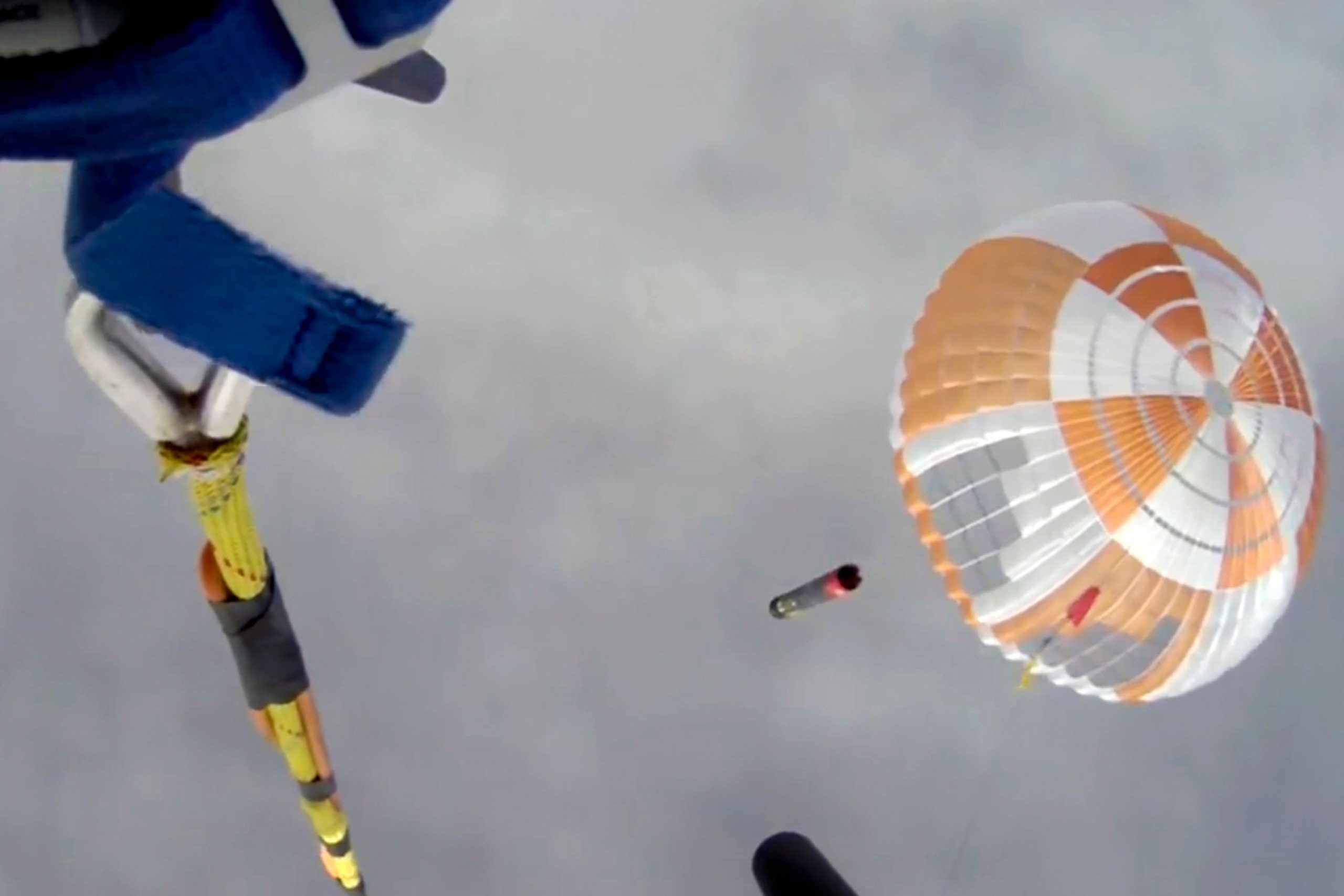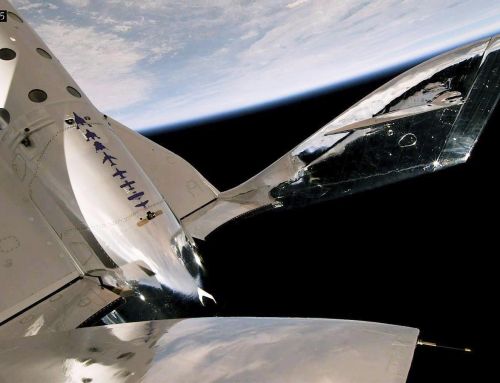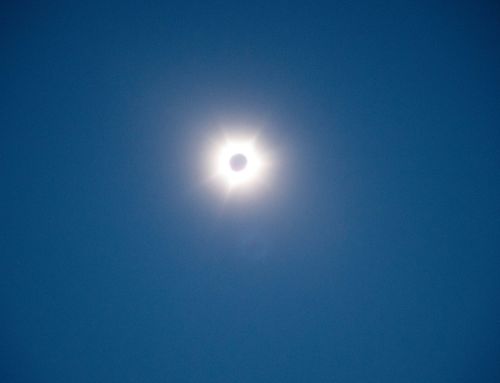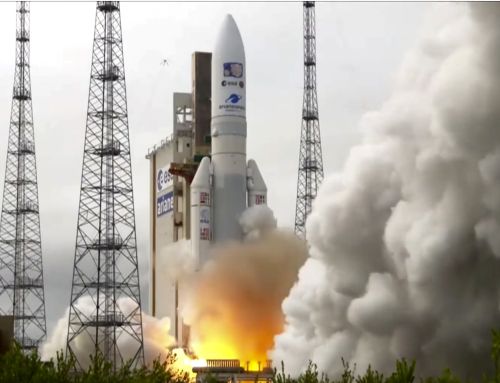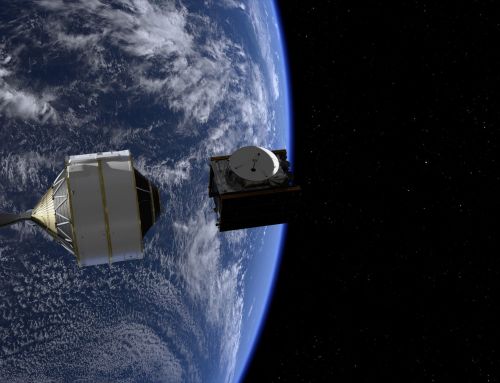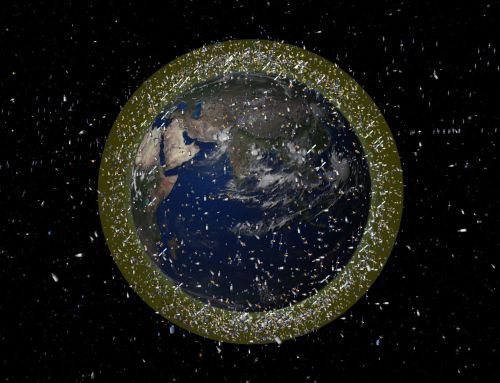A helicopter caught a falling rocket – before its crew was forced to let it go again for safety reasons.
Rocket Lab partially pulled off the feat as it pushes to make its small Electron rockets reusable.
The California-based company regularly launches 59ft rockets from the remote Mahia Peninsula in New Zealand to deliver satellites into space.
The Electron rocket was launched on Tuesday morning and sent 34 satellites into orbit before the main booster section began falling to Earth.
Its descent was slowed to around 33 feet per second by a parachute.

The helicopter crew then sprang into action, dangling a long line with a hook below to snag the booster’s parachute lines.
The crew caught the rocket but the load on the helicopter exceeded the parameters from tests and simulations so they jettisoned it again.
It fell into the Pacific Ocean, where it was collected by a waiting boat.
The rollercoaster of emotions was caught on a livestream, with people at mission control cheering and clapping as the rocket was caught, only to let out a collective sigh and gasp about 20 seconds later.
The task is so complex that Peter Beck, who founded Rocket Lab, likened it to a “supersonic ballet”.
He branded the mission a success, saying that almost everything went to plan and that the unexpected load issue is a tiny detail which will soon be fixed – a “nothing in the scheme of things”.
He said of the helicopter crew: “They got a great catch, they just didn’t like the way the load was feeling”.
Mr Beck said a detailed analysis should reveal the reasons for the discrepancy in the load characteristics.
He said he hopes the company can salvage some or all of the spent rocket booster, despite it being dunked in salt water.
Rocket Lab named its latest mission “There And Back Again” — a reference to The Hobbit film trilogy filmed in New Zealand.
The company described the brief mid-air capture at 6,500ft by the Sikorsky S-92 helicopter as a milestone.
It said making its rockets reusable will let the company increase the number of launches it makes and reduce costs.
Elon Musk’s SpaceX company designed the first reusable orbital rocket, the Falcon 9.
Watch the whole thing below:
